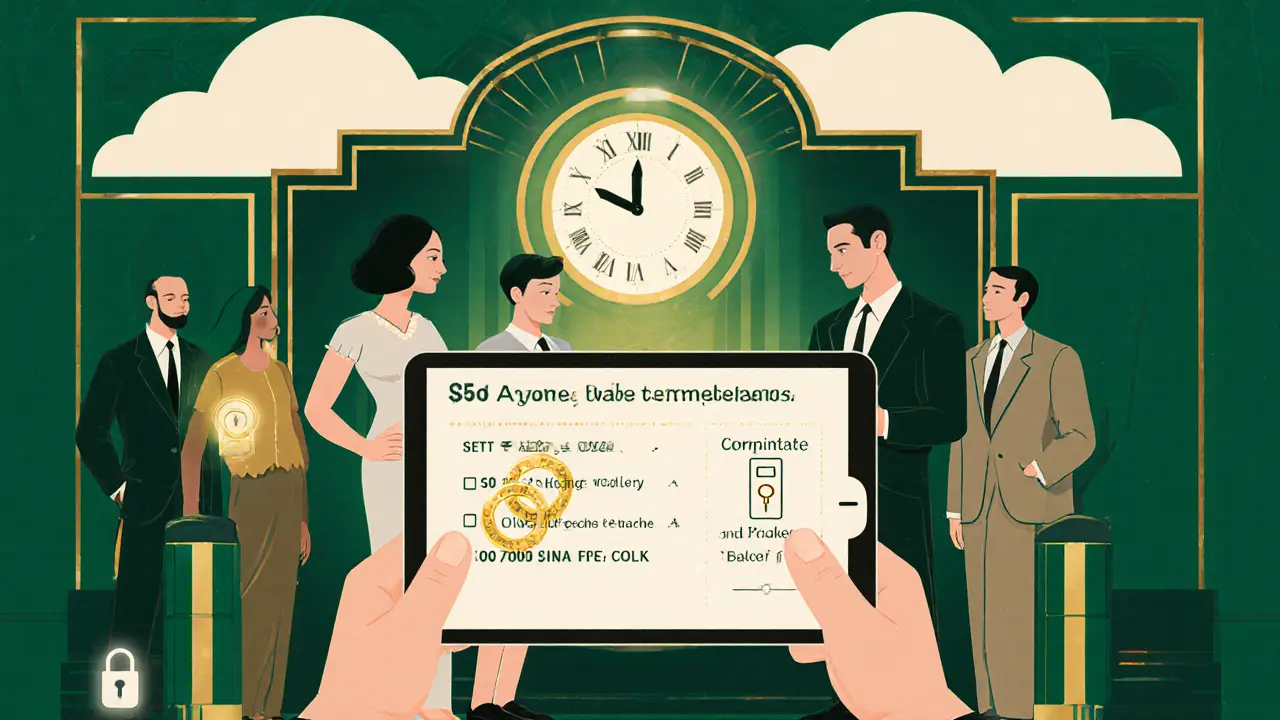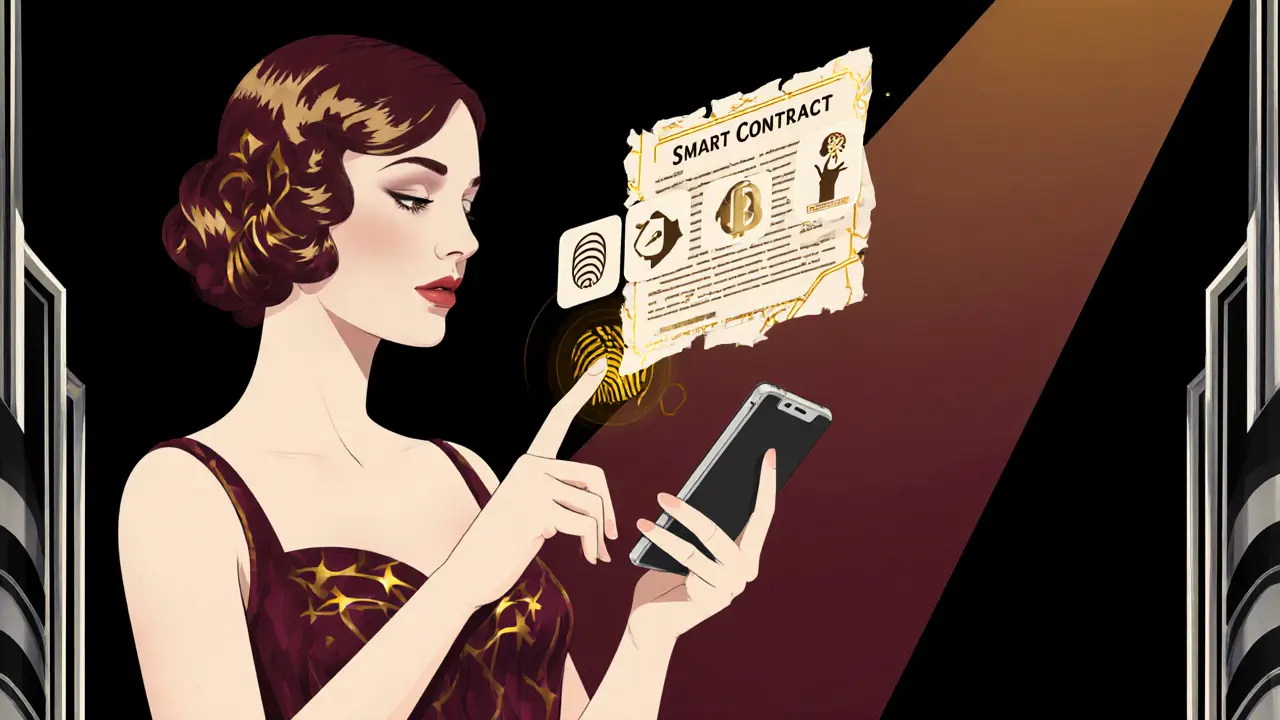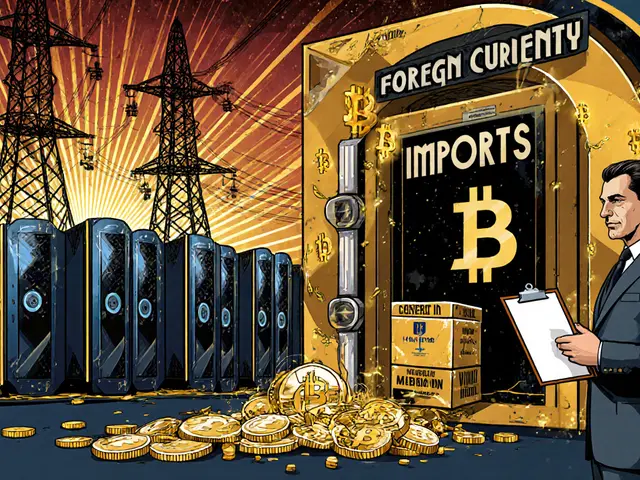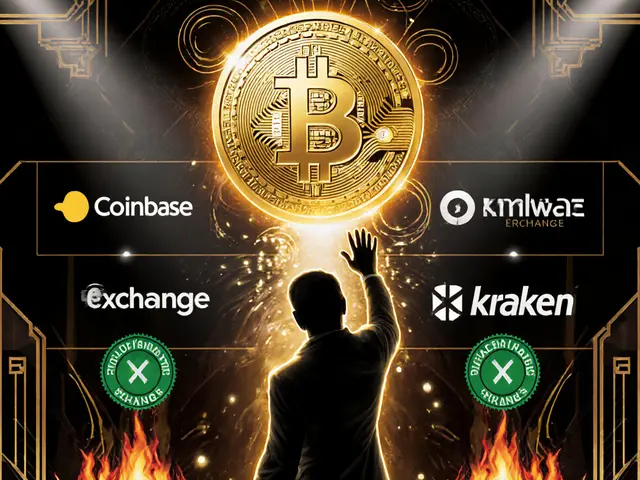Gas Fee Calculator
Compare Wallet Costs
See how Account Abstraction eliminates gas fees for everyday transactions
Results
Traditional Wallet
Account Abstraction Wallet
Account Abstraction Note: With AA, gas fees can be sponsored by dApps or paid in stablecoins (USDC, DAI). This calculator assumes 100% gas sponsorship.
Imagine signing into your crypto wallet with your fingerprint instead of a 12-word seed phrase. Or sending a token without ever buying ETH for gas. Or recovering your wallet if you lose your phone-without panicking, because a friend or family member can help you get back in. This isn’t science fiction. It’s what account abstraction makes possible today.
What Account Abstraction Actually Does
Traditional crypto wallets, like MetaMask, use something called Externally Owned Accounts (EOAs). These are simple: one private key, one way in. Lose that key? Your money’s gone. Need gas? You must hold ETH. Want to share access? You can’t-without giving up full control. It’s like owning a door with a single lock you can’t change or reset. Account abstraction changes that. It turns your wallet into a smart contract. That means it can run code. And that code can do things a regular wallet never could. You’re no longer stuck with a rigid, static account. You get a programmable one. Think of it like upgrading from a flip phone to a smartphone. The old one works, but the new one adapts to how you live. This isn’t just theory. Ethereum’s EIP-4337 standard made it real. Now, wallets can handle transactions through something called UserOperations-special messages that smart contracts understand. Bundlers collect these, bundle them together, and send them to the blockchain. All of this happens behind the scenes. You just click ‘send’.No More Gas Fees? Yes, Really
One of the biggest pain points in crypto? Paying for gas. You can’t send tokens unless you have ETH. If you bought SOL or MATIC, you still need ETH to move them on Ethereum. That’s confusing. It’s a barrier. And it’s gone with account abstraction. With AA, developers can pay your gas fees. That’s called gas sponsorship. You can pay for transactions in USDC, DAI, or even your own token. No need to juggle multiple assets just to make one move. Apps can even cover gas for new users as a signup bonus. That’s how you onboard millions of people who don’t want to learn blockchain mechanics before they use it. In practice, this means a gamer can buy an NFT skin in a game with their credit card, and the game’s backend handles the gas. A freelancer can get paid in crypto and instantly convert part of it to USD without touching a wallet interface. The complexity disappears. The experience feels like Web2.Recovery That Doesn’t Make You Sweat
Losing your seed phrase is the nightmare scenario. No backup? No recovery. No second chances. Account abstraction fixes this with social recovery. Instead of memorizing 12 random words, you pick trusted people-your spouse, your best friend, your lawyer. You set rules: two out of three must approve a recovery. If you forget your password or get hacked, they help you reset access. No middleman. No customer support call. Just a simple, human process. Wallets like Argent and Safe are already doing this. But with full account abstraction, it’s built into the protocol, not bolted on as a feature. You don’t need to switch wallets to get it. It’s native. And it works across chains.
Security You Can Customize
Traditional wallets have one weakness: one key, one point of failure. If that key is stolen, you’re done. Account abstraction lets you build your own security rules. You can require:- Biometric login (Face ID or fingerprint)
- Multi-signature approval for large transfers
- Time locks-no withdrawals for 24 hours after a change
- Daily spending limits
- Session keys for apps-temporary access that expires after an hour
One Wallet for Every Chain
Right now, if you use Ethereum, Solana, and Polygon, you need three wallets. Each has its own seed phrase. Each has its own gas token. Switching between them is messy. Account abstraction unifies this. Your smart contract wallet can interact with any chain that supports it. You don’t need bridges or manual transfers. The wallet handles the cross-chain logic automatically. You send USDC from Ethereum to Polygon? It happens in one click. The wallet finds the best path, pays the gas, and delivers it. This isn’t just convenient. It’s transformative. It turns fragmented ecosystems into a single, seamless experience. No more wallet sprawl. No more lost assets in the wrong chain.
Real-World Use Cases That Matter
This isn’t just about making wallets prettier. It’s about solving real problems people face:- DeFi users: Set up auto-sell orders when a token hits $10. No need to sit and watch prices.
- Gamers: Grant a game temporary access to your NFT collection for 24 hours. Then it locks again.
- Parents: Set up a "dead man’s switch"-if your wallet is inactive for 6 months, funds go to your child.
- Businesses: Require three approvals for any withdrawal over $5,000. All logged, transparent, and enforced by code.
What’s Holding It Back?
It’s not perfect yet. Some challenges remain:- Smart contract deployment costs can be high for small developers.
- Not all wallets support AA yet-though major ones like Argent, Safe, and new entrants like Biconomy are pushing hard.
- Users still need education. Social recovery sounds great, but if you don’t understand how to pick guardians, you might set it up wrong.
Why This Is the Future
Crypto has spent years trying to fix its image. Too complicated. Too risky. Too confusing. Account abstraction doesn’t just tweak the system. It rebuilds it from the inside out. It turns wallets from fragile keys into intelligent, adaptive tools. It removes the technical barriers that kept regular people away. The shift isn’t coming. It’s already here. Wallets built on AA are growing 3x faster than traditional ones. Major chains like Polygon, Arbitrum, and zkSync now support it natively. Even big platforms like Shopify are testing AA for crypto payments. This isn’t about making crypto easier for techies. It’s about making it easy for everyone else. And that’s how it goes mainstream.What is the main difference between a regular wallet and an account abstraction wallet?
A regular wallet (EOA) is controlled by a single private key. You can’t change how it works. An account abstraction wallet is a smart contract. You can program it to do things like pay gas for you, recover with friends, limit spending, or auto-sell tokens. It’s not just a key-it’s a customizable financial tool.
Do I still need a seed phrase with account abstraction?
Not necessarily. Many AA wallets replace seed phrases with social recovery-where trusted contacts help you regain access. You can still use a seed phrase if you want, but you don’t have to. Some wallets let you log in with email, Google, or biometrics instead.
Can I use account abstraction on any blockchain?
Originally built for Ethereum via EIP-4337, AA is now supported on Layer 2s like Polygon, Arbitrum, zkSync, and Base. Other chains like Solana and Sui are exploring similar concepts. Not every chain has it yet, but adoption is spreading fast.
Is account abstraction safer than traditional wallets?
It can be. With AA, you can add multi-signature rules, time locks, and spending limits. You eliminate the single-point failure of a private key. But if you set up social recovery poorly-like picking untrustworthy guardians-it can introduce new risks. Security depends on how you configure it.
Do I need to be a developer to use an account abstraction wallet?
No. You don’t need to write code. Wallets like Argent, Safe, and Biconomy offer simple apps where you enable AA features with a few taps. You’re not touching the smart contract-you’re just using a better-designed interface that runs on top of it.



